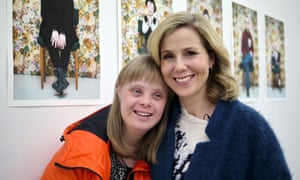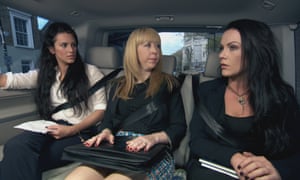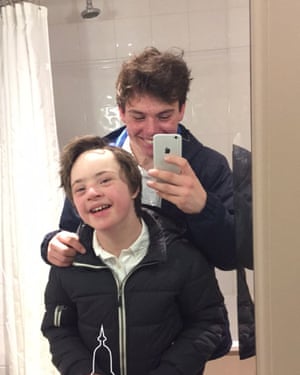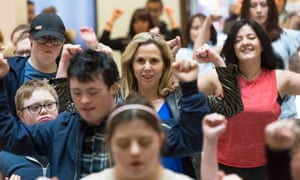When the New York Times publishes a piece on the glaring flaws in a large study conducted on the effectiveness of recommended treatments for chronically ill people, saying claims of recovery are “overstated” and “not justified by the data”, I can’t imagine that’s a good thing. However, as someone who has been ill with chronic fatigue syndrome (also called myalgic encephalomyelitis or ME/CFS) for over a decade, the article represents hope.
The authors, Julie Rehmeyer and public heath expert David Tuller, refer to the Pace trial, a publicly funded study conducted in the UK comparing the effectiveness and safety of four treatments for ME/CFS. The authors of the study were recommending two of the treatments, cognitive behavioural therapy and a program of gradually increased exercise, long before the trial commenced, on the assumption that patients with the debilitating condition were plagued with “unhelpful beliefs” about the organic nature of their illness. If we can overcome those beliefs, the theory goes, we should be able to reverse our physical deconditioning and exercise our way back to health.
In the published results, the authors claimed a modest recovery rate of 22% with the favoured therapies (other therapies were found to be comparatively ineffective). However, when patient groups gained access to the data from the trial through freedom of information requests, it was eventually revealed that the definition of “recovered” had been altered partway through the trial to include people who were still relatively ill (some with physical function on par with class II congestive heart failure patients), and had this not been done, none of the recovery rates would have been statistically significant.
As it turns out, exercise and positive thinking are not a panacea. In fact, when surveyed, 74% of people with ME/CFS who have attempted the recommended exercise program report that their condition worsens, some losing significant function in the fallout.
There is now a wealth of research on the biology of ME/CFS, discrediting the idea that we are merely “deconditioned”, but the theory that our beliefs hold us back remains persistent, both within the health care system and the media.
For example, Queensland’s Griffith University recently released a groundbreaking study confirming that people with ME/CFS have faulty calcium receptors in their immune cells, and various media outlets claimed this meant that the debate over whether or not the illness was “all in our heads” was finally over.
Never mind that the same claim was made back when studies on our metabolisms, our gut bacteria, excess molecules regulating inflammation, reduced white matter, unusual gene expression and lowered oxygen uptake were published, now our illness was real.
One wonders how many times an illness must be shown to exist before up to 250,000 chronically ill Australians (one in four of whom are too ill to leave their homes) will no longer be accused of maintaining a collective delusion.
While the research is very promising, realistically we are years, possibly decades, from the development of effective treatments for people with ME/CFS, and, in the interim, little has been done to alleviate the scepticism of the health professionals tasked with our welfare. The Pace trial remains the official touchstone for treatment recommendations and no specialist field has officially adopted the condition. Finding a doctor who is willing to take the illness seriously, and make appropriate recommendations to disability service providers, remains extremely difficult, and continues to cause great distress and financial hardship for Australians with the condition and their carers.
Penelope McMillan, president of ME/CFS Australia, believes more accredited training for GPs is in order. McMillan, who has been ill herself for 19 years, says training has already been developed by Bridges and Pathways, an organisation dedicated to building collaborations between researchers and medical professionals for the benefit of people with ME/CFS. “PHNs [primary health networks] are funded to manage and support primary healthcare services in their region,” she says. “Our task now is to get those organisations to agree to offer the training.”
But support organisations such as Penelope’s are currently bidding farewell to their own funding as government grants are redirected toward the NDIS, which is expected to take up the resulting slack in service provision. For people with ME/CFS, who are already being found ineligible for the scheme, this is hardly reassuring.
“We have members who are bed-bound and they can’t access the NDIS,” says McMillan. “It’s just heartbreaking … We have people in distressing circumstances and there’s just no help. The legislation was quite clear that the NDIS should be based on need, but the NDIA [National Disability Insurance Agency] has created a procedure that discriminates.”
McMillan refers to a list of conditions produced by the NDIA, intended as a guide for assessors. If your condition is not on the list (as ME/CFS is not) you have almost no chance of being approved for the scheme, regardless of need. In effect, the NDIA has granted privileges to those lucky enough to be represented by well-funded lobby groups at the time the list was created.
Kristel Wood struggles to work eight hours a week (though she tells me four hours is more realistically sustainable) and requires support from her family and a home care service for basic housekeeping and meal preparation. She has been rejected for the NDIS three times. “I could focus more on work,” she says, when I ask her how the NDIS would change her life. “I could get regular specialist home visits from a physio. I wouldn’t have the constant stress of playing catch-up with basic medical expenses. I’d be able to try treatment options that are currently inaccessible to me. Right now I’m barely coping.”
Wood’s third application was rejected on the basis that ME/CFS is not a “permanent illness” and “exercise and cognitive behavioural therapy are effective treatments”, a clear reference to the Pace claims, and incongruent with the established recovery rate of 5% in adults.
“Despite the study being well and truly debunked, traces of it will stay in the health system for a very long time. To weed it out is going to be quite a challenge,” says McMillan.
Perhaps that challenge should start with the Royal Australian College of General Practitioners(RACGP) who still advise GPs to recommend exercise therapy, leaving already exhausted patients to deal with their doctors’ insistence that recovery is not only possible but likely. It’s a rare GP who will trust a patient’s knowledge over the recommendations of the RACGP, and there’s an unfortunate power dynamic between doctor and patient that tends to make attempts at education uncomfortable.
So while the new research is very exciting and validates our experiences, what we very desperately need right now is services, and updates to the resources health professionals use to decide our fates, because we don’t have the energy to be battling healthcare providers for our dignity.
Yet more research shows chronic fatigue syndrome is real. When will health services catch up? | Naomi Chainey



